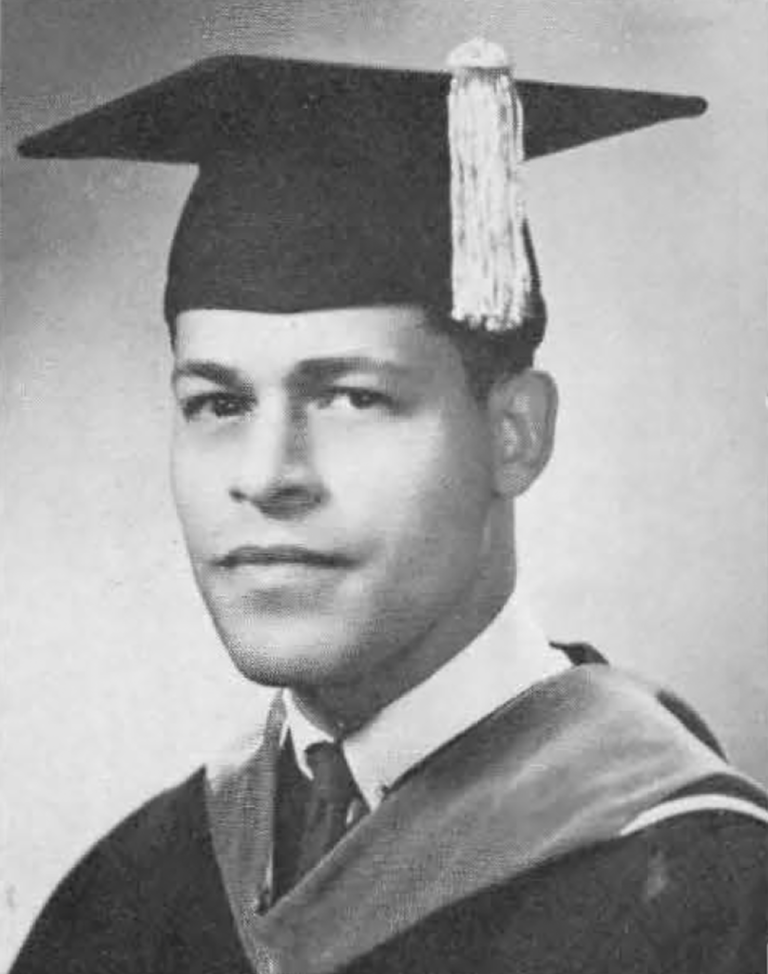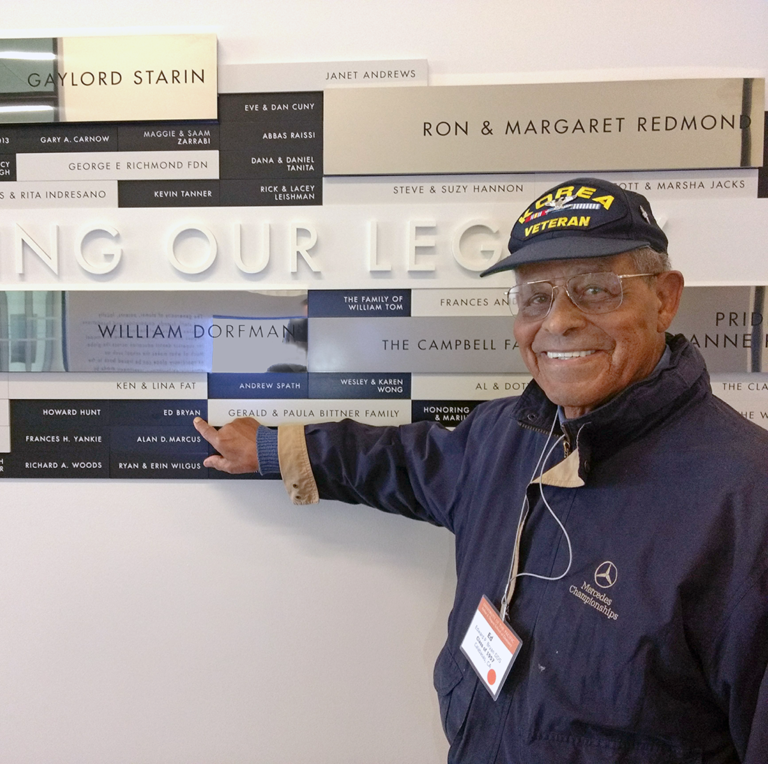By Marianne Sampogna Jacobson
Reaching his 90th birthday on August 12, Dr. Edward Bryan ’57 had a lot to celebrate. A charismatic, people person, “Dr. Ed” exudes positive energy in all that he does. He didn’t set out to be a trailblazer, but his charm and good luck led him to achieve many firsts. Dr. Ann Marie Silvestri ’75, past president of the Alumni Association, who recently spent time with Bryan, remarks, “He is an intriguing, knowledgeable and charming man who really knows what he is doing.” Joanne Fox, director of the Alumni Association, calls him “an uplifting, inspirational, positive and generous spirit.”
An only child raised in the Back Bay section of Boston, Bryan had a happy childhood and has vivid recollections about his summer jobs. In what he calls a “highlight of my life,” in the summer of 1944, his cousin got him a job selling sandwiches on the train from Boston to New York City. With his youthful confidence, upon seeing Eleanor Roosevelt on the train one day, he introduced himself. She told him, “Make sure you get an education; without it you have nothing.” He took that message to heart, attending University of California at Berkeley, followed by the College of Physicians & Surgeons; and has never stopped learning.
Other significant influencers were his godfather, one of the first African Americans to attend Tufts University, who steered Bryan toward dental school, and a College of Physicians & Surgeons alumnus for whom Bryan worked as a dental assistant in Fort Riley, Kansas, in 1952.
After graduating in 1957 from the College of Physicians & Surgeons as only the third African American to do so, Bryan began his career in the U.S. Air Force. He then opened a private practice for three years, but not having a “taste for it” he returned to government service. Under the Department of Justice Federal Bureau of Prisons, he became the chief dental officer at the Metropolitan Detention Center (MDC) in Los Angeles where he worked for more than 20 years and treated notorious prisoners, including Charles Keating and Heidi Fleiss. He found the work at MDC rewarding and was appreciated by the inmates. One patient, a mobster serving a 55-year sentence, sent Bryan two dozen roses to thank him for the great dental care he received.
[pullquote]
“an uplifting, inspirational, positive and generous spirit.”
[/pullquote]
Bryan’s people skills have served him well. He first encountered “bitter honey,” as he refers to prejudice, in Texas while serving in the military. Years later, while working at MDC, he encountered a bigoted patient who needed his tooth pulled. A convicted bomber addressed Bryan with the “N” word. Quick on his feet, Bryan adopted an Indian accent and convinced the inmate that he was a doctor from India so he would accept his care.
Bryan met his future wife, Barbara Grischott, at UC Berkeley, where they were two of the few African Americans on campus at the time. “She had four boyfriends who all went overseas and I was the only one that came back alive, so I guess I was the last man standing,” he chuckles. They had a marvelous marriage for 57 years and had two children. Barbara was a dancer who opened her own studio and Bryan boasts she was the “greatest cook in the world.”
Bryan has many interests, particularly golf, which he has been playing since the 1970s. He enjoys telling funny stories, peppered with great impressions and accents. When he was younger, Bryan was an avid runner. Although he did not attend, he qualified for the 400-meter hurdles in the 1952 Olympics in Helsinki, Finland. His classmate, Dr. Jim Cavan ’57, recalled how excited Bryan was when Roger Bannister broke the 4-minute mile in 1954. “He jumped up and down and hollered at the radio.”
Bryan’s ethnic background is a colorful mix of “white Virginians to Madagascar blacks,” and he says he has always been comfortable in his own skin. “I never got uptight about racial issues; why should I bother with someone else’s ignorance?” In spite of this quiet activism, Bryan made great strides for himself and other African Americans who followed. He was the first black person to join both the Psi Omega dental fraternity and the exclusive Los Angeles Athletic Club. He admits that achieving such “firsts” reflected his outgoing, positive nature and resulting friendships rather than a directed campaign towards equality. He calls it “lucky.”
He continues to keep his cool and remain productive, positive and in good health with an inspiring “daily credo” for better living. This includes embracing forgiveness, exercise, sleep and poetry and avoiding cigarettes, complaints, inflated ego and greed. “The list I go through every day reinforces who I am.”
Bryan continues to move forward with zeal. He still works part time at the prison four days a week treating patients. “I have to keep the motor running,” he quips. And he has maintained his connection with his alma mater. The dental school “gave me something and I wanted to give something back,” so he recently set up an endowment fund for $50,000 to help African American students. Bryan’s endowment will be doubled to $100,000 thanks to the University’s Powell Match program.
To those entering the profession today, the advice he offers is “it doesn’t cost a cent to smile.”
Marianne S. Jacobson, BA, MBA, is a freelance writer from Marin County.

